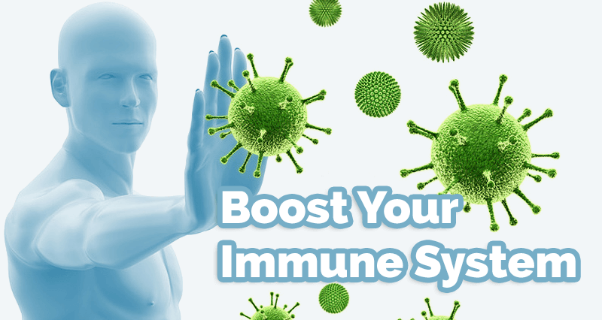Water is an essential component of life, and clean drinking water is crucial for maintaining good health. However, not all water sources are safe for consumption. Contaminated water can pose serious health risks, leading to various diseases and long-term health problems. In this article, we will explore why clean drinking water is important, the health benefits it offers, and how you can ensure access to safe water for yourself and your family.
Why Is Clean Drinking Water Essential?
Clean drinking water is free from harmful contaminants such as bacteria, viruses, heavy metals, and chemical pollutants. Consuming unclean water can lead to a wide range of health problems, including gastrointestinal infections, kidney damage, and neurological disorders. Here’s why clean water is a necessity:
1. Prevents Waterborne Diseases
Dirty or contaminated water is a major cause of waterborne diseases such as cholera, typhoid, dysentery, and diarrhea. According to the World Health Organization (WHO), millions of people suffer from illnesses caused by unsafe drinking water every year. Clean water significantly reduces the risk of infections by eliminating bacteria, parasites, and other pathogens.
2. Supports Digestion and Nutrient Absorption
Water plays a critical role in digestion and the absorption of nutrients. When you consume clean water, your body can efficiently break down food and transport essential nutrients to various organs. On the other hand, drinking contaminated water can introduce harmful bacteria into the digestive system, leading to stomach discomfort, bloating, and infections.
3. Boosts Immune System Function
Your immune system relies on proper hydration to function effectively. Clean water helps flush out toxins from the body and supports the production of white blood cells, which fight infections. Drinking contaminated water can weaken the immune system, making you more susceptible to illnesses.

4. Promotes Kidney Health
The kidneys are responsible for filtering waste from the blood and maintaining fluid balance in the body. Drinking clean water helps them function properly, preventing kidney stones, urinary tract infections (UTIs), and other kidney-related issues. Impurities in water, such as high levels of lead or nitrates, can damage kidney function over time.
5. Enhances Brain Function and Mental Health
Dehydration caused by a lack of clean water intake can lead to headaches, fatigue, and difficulty concentrating. Your brain consists of about 75% water, and proper hydration is essential for cognitive function. Drinking clean water ensures that brain cells receive adequate oxygen and nutrients, improving focus, memory, and overall mental well-being.
6. Maintains Healthy Skin and Hair
Clean water helps keep your skin hydrated, reducing dryness and preventing acne breakouts caused by toxins. It also promotes healthy hair growth by ensuring proper hydration of hair follicles. Contaminants in water, such as chlorine and heavy metals, can damage skin and hair, leading to irritation and hair loss.
7. Regulates Body Temperature
Water plays a vital role in regulating body temperature through sweating and respiration. Drinking clean water helps prevent dehydration and heat exhaustion, especially in hot climates or after intense physical activity. Contaminated water can disrupt this process, leading to heat-related illnesses.
How to Ensure Access to Clean Drinking Water
While many countries have access to treated water, some regions still struggle with water contamination. Here are some ways to ensure that you and your family consume safe drinking water:

1. Use a Water Purifier
Installing a reliable RO (Reverse Osmosis) water purifier at home is one of the most effective ways to ensure access to clean water. RO purifiers remove bacteria, viruses, heavy metals, and chemical pollutants, providing safe and great-tasting drinking water.
2. Boil Water Before Drinking
If you do not have access to a water purifier, boiling water for at least one minute can kill harmful microorganisms. However, boiling does not remove heavy metals or chemical pollutants.
3. Use Water Filtration Systems
In addition to RO purifiers, activated carbon filters and UV purification systems can help eliminate specific contaminants from water. These systems are effective in removing chlorine, sediments, and bacteria.
4. Regularly Maintain Water Storage Tanks
If you store water in tanks, make sure to clean them regularly to prevent bacterial growth. Stagnant water can become a breeding ground for harmful microorganisms.
5. Be Aware of Water Sources
Always be cautious about where your drinking water comes from. If you rely on well water, have it tested periodically for contaminants such as arsenic, nitrates, and bacteria.
6. Stay Informed About Water Quality Reports
Many cities provide annual water quality reports that detail the presence of contaminants in the municipal water supply. Reviewing these reports can help you make informed decisions about your drinking water.
Conclusion
Drinking clean water is essential for good health and overall well-being. It prevents diseases, supports digestion, boosts immunity, and enhances brain function. Ensuring access to safe drinking water through filtration systems, boiling, and regular testing is crucial for maintaining a healthy lifestyle.
If you want to take control of your water quality, consider investing in a high-quality water purifier to enjoy the benefits of pure, safe, and refreshing drinking water every day. Your health depends on it!
----------------------------------------------------------------------------------
SANAKY VIETNAM., CO LTD- Manufacturer of Power, Distribution and Dry-type Transformer as well as RO Water Purifier, Chest Freezer - Upright Cooler, ...
☎ Hotline: (+84) 986 484 544
? hank@sanaky-vn.com
? www.sanaky-vn.com
 Vietnamese
Vietnamese  English
English  Chinese
Chinese  French
French  Spanish
Spanish  Russian
Russian  Arabic
Arabic  Portuguese
Portuguese